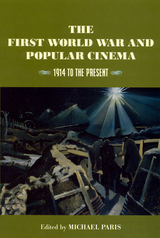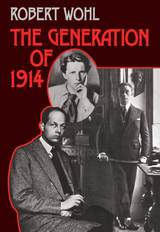
The first history of the involvement of American business in direct foreign investment explores a number of pertinent questions: What was the genesis of U.S. business interests in overseas markets? What perspectives guided the financial and social policies of the pioneering companies? In what way did the activities of American business abroad influence U.S. foreign policy?
Mira Wilkins recounts the histories of early foreign investment by such familiar companies as Singer, United Fruit, Edison, American Smelting and Refining, Anaconda Copper, American Telephone, and International Harvester. Refuting a well-established myth, she demonstrates that early American foreign investment was not confined to the extractive industries and utilities, and shows that, by 1914, while America remained a debtor nation in international accounts, a large number of U.S. multinational manufacturing corporations had already come into existence. Indeed, the percentage of the 1914 gross national product attributed to direct foreign investment equals that percentage of the 1966 GNP.
Though wholly self-contained, this works joins with the author’s subsequent volume, The Maturing of Multinational Enterprise: American Business Abroad from 1914 to 1970, to form the first overall history of American business abroad from our earliest times to the late twentieth century.

The Great War played an instrumental role in the development of cinema, so necessary was it to the mobilization efforts of the combatant nations. In turn, after the war, as memory began to fade, cinema continued to shape the war's legacy and eventually to determine the ways in which all warfare is imagined.
The First World War and Popular Cinema provides fresh insight into the role of film as an historical and cultural tool. Through a comparative approach, essays by contributors from Europe, Australia, Canada, and the United States enrich our understanding of cinematic depictions of the Great War in particular and combat in general. New historical research on both the uses of propaganda and the development of national cinemas make this collection one of the first to show the ways in which film history can contribute to our study of national histories. The contributors to the volume monitor popular perceptions of the war, the reshaping of the war's legacy, and the evolution of cinematic clichés that are perpetuated in filmmaking through the century. Some of the films they discuss are All Quiet on the Western Front, Gallipoli, The Grand Illusion, The Big Parade, Battle of the Somme, J'Accuse, Regeneration, and many more. The First World War and Popular Cinema is a vital addition to film studies and history, two fields only recently united in a productive way.

The generation of 1914 holds a special place in memory, affection, and myth. In this irresistible and moving book, Robert Wohl rescues it from the shadows of legend and brings it fully into the realm of understanding. He tells the story of the young men--the middle class elite of five European countries, France, Germany, England, Spain, and Italy, to recreate the generational consciousness that united them as well as the unique national experience that made them different.
These were men born at the end of the nineteenth century when the world of reason was disintegrating into a world of irrationality. They were destined to rule but their lives were interrupted by the greatest of wars, leaving them searching for identity and historical continuity. Wohl recaptures this search through novels, poems, autobiographies, memoirs, sociological treatises, philosophical essays, university lectures, political speeches, conversations when recorded, letters, personal notebooks, and newspaper articles. His book is a brilliant study of European mentalities, both collective and individual.
Probing behind ideas to find the experience that inspired them, Wohl illuminates in unexpected ways the origins of World War I and its impact on its participants. His exploration of the consciousness of generational unity and the power of the generational bond enables him to place in a novel context the spread of pessimism and despair, the waning of liberal and humanitarian values, the rise of Communist and Fascist movements, and the sudden eruption of violence in Europe's progressive countries between the two world wars.

From the colonial era to 1914, America was a debtor nation in international accounts—owing more to foreigners than foreigners owed to us. By 1914 it was the world’s largest debtor nation. Mira Wilkins provides the first complete history of foreign investment in the United States during that period. The book shows why the United States was attractive to foreign investors and traces the changing role of foreign capital in the nation’s development, covering both portfolio and direct investment. The immense new wave of foreign investment in the United States today, and our return to the status of a debtor nation—once again the world’s largest debtor nation—makes this strong exposition far more than just historically interesting.
Wilkins reviews foreign portfolio investments in government securities (federal, state, and local) and in corporate stocks and bonds, as well as foreign direct investments in land and real estate, manufacturing plants, and even such service-sector activities as accounting, insurance, banking, and mortgage lending. She finds that between 1776 and 1875, public-sector securities (principally federal and state securities) drew in the most long-term foreign investment, whereas from 1875 to 1914 the private sector was the main attraction. The construction of the American railroad system called on vast portfolio investments from abroad; there was also sizable direct investment in mining, cattle ranching, the oil industry, the chemical industry, flour production, and breweries, as well as the production of rayon, thread, and even submarines. In addition, there were foreign stakes in making automobile and electrical and nonelectrical machinery. America became the leading industrial country of the world at the very time when it was a debtor nation in world accounts.

With this magisterial study of American multinational enterprises, Mira Wilkins becomes the preeminent scholar in the all-important field of business history. A comprehensive work of prodigious research and erudition, her book gives us the history of American corporations abroad from 1914 to 1970. American multinational enterprise is not new. Over time, giant U.S. multinational corporations have crossed political boundaries, so much so that their activities now command worldwide attention.
Harvard Studies in Business History series Editor Alfred D. Chandler, Jr. comments in his introduction: “All scholars analyzing the experience of the multinational enterprise will have to rely heavily on the record Ms. Wilkins presents here. Her history must long remain a basic source for historians, economists, and political scientists who wish to explain the rise and continuing domination of large-scale business enterprises in modern market economies, to understand the growth and changes in international and national economies since World War I, and to study the interrelationships between national economic policies and priorities and a changing international economic order.”
This work is wholly self-contained and can be read without reference to its predecessor, The Emergence of Multinational Enterprise: American Business Abroad from the Colonial Era to 1914. Yet the volumes, together, form the first overall history of American business abroad from our earliest times to the late twentieth century.
READERS
Browse our collection.
PUBLISHERS
See BiblioVault's publisher services.
STUDENT SERVICES
Files for college accessibility offices.
UChicago Accessibility Resources
home | accessibility | search | about | contact us
BiblioVault ® 2001 - 2024
The University of Chicago Press









